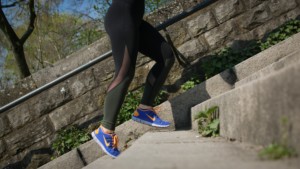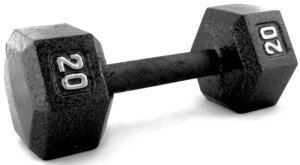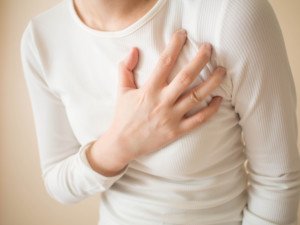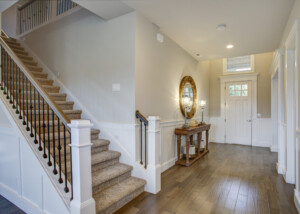If your heart races after you climb a flight of stairs, here’s one reason why and how to solve this problem.
When I worked as a personal trainer at a large gym, I’d have my clients simply walk up a flight of stairs to see if they’d get a racing heart.
I just want to first encourage those who experience a racing heart after going up a flight of stairs to have a complete exam by a cardiologist.
A healthy person (no heart troubles) who is de-conditioned due to lack of exercise will experience a racing heart after climbing stairs fast enough.
Even a slow pace can get the heart rate shooting up in an otherwise healthy person.
When I was in a volleyball club years ago, consisting of primarily 20-somethings, these young people hated having to climb five flights of stairs to get to the fifth story of the building where the courts were set up — and these were experienced volleyball players.
Going up flights of stairs is no picnic, even to athletes.
Climbing stairs, to any out-of-shape individual, is a bear, and it’s expected that their heart would be racing at the top.
If climbing stairs produces other symptoms besides a racing heart, this would be cause for concern, such as chest pain, nausea and feeling faint.
A heart that’s not conditioned will race under exertional circumstances, even in the absence of an abnormality, heart disease or other medical condition.
The Fix Is to Exercise
You may already think you’re getting plenty of exercise, including “going up and down the staircase at home a hundred times a day.”
But use of a staircase in the activities of daily living is not sufficient to overcome the racing heart issue.

Casual use is not enough. Shutterstock/Javani LLC
Program for Preventing a Racing Heart from Climbing Stairs in a Healthy Individual
Incorporate twice weekly sessions of high intensity interval training. HIIT will teach your heart to get used to brief high loads of exertion and to recover quickly from them.
HIIT is superior to inducing this kind of cardiac fitness when compared to steady state aerobic sessions.
For best results, conduct HIIT using a staircase.
One of the versions of this that’s very effective is to dash up a flight of stairs while holding dumbbells or weight plates.
The “dash” can be a walk, if that’s all you can do with the weights.

The objective is to move as fast as you can (even if it’s a slow pace) while holding the weights.
At the top of the stairs following one of these dashes, your heart should be racing. That’s the objective.
If it’s not racing, go faster or use heavier weights. (Of course, if you get chest pain, nausea or otherwise feel sick, stop the activity.)
So if holding 10 pound dumbbells no longer is difficult even with a fast trot, then see what happens when you use 12- or 15-pounders. Use more weight over time.

At the top, set down the weights and walk around for one to two minutes, then do another set (four or five total). Do not sit or stand still during the rests. Keep moving during the recovery.
For healthy beginners, you should have a rating of perceived exertion of 6-7 at the top of the staircase.
For fitter people, aim for an RPE of 8-9. This is based on a scale of 1 to 10, where 1 = how you’d feel soaking in a hot tub, and 10 = how you’d feel after trying to outrun a train.
The ideal staircase is at least 30 steps (two or more flights), but don’t climb so many steps that after 30 seconds, you’re still climbing.
This is supposed to be short, brief bursts of exertion, not a pacing type of movement.
To prevent your heart from racing from casual use of a staircase (like on the job or around the house), you must get your heart racing via HIIT, and twice a week is all you need.
On one or two additional days, yes, I encourage steady state cardio. But if you rely only on steady state (long duration aerobics), it won’t produce the spectacular results of HIIT.










































